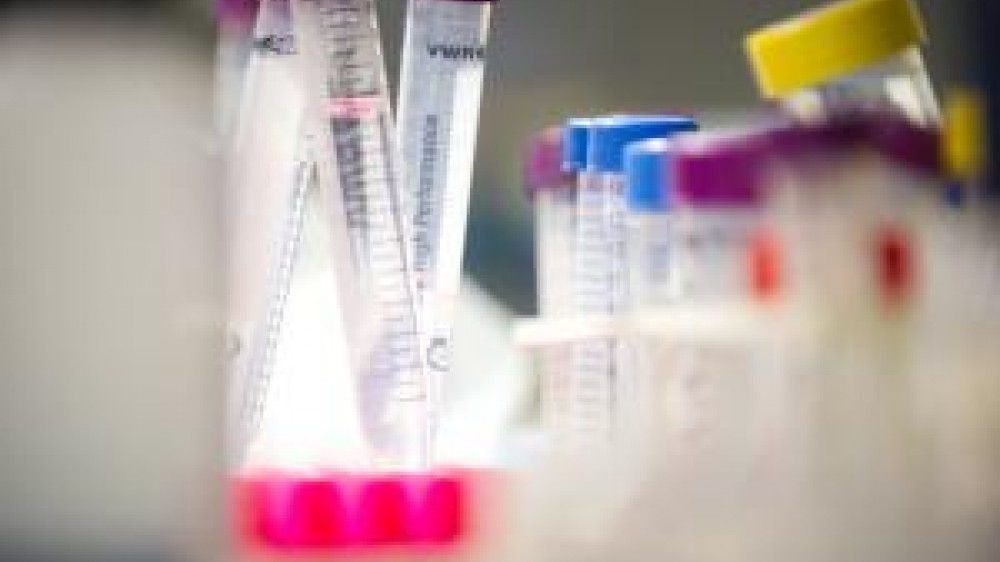£2.4 million awarded to support the development of new 3Rs approaches

We have recently committed £2.4m to seven new project grants. This flagship scheme has been running since the NC3Rs' conception in 2004 and with these new awards over £40m has now been awarded to the development of 3Rs approaches and technologies with lasting 3Rs legacies.
This year’s awards include three projects focusing on applying the 3Rs to various aspects of veterinary research. The first award to Dr Michael McGrew at the University of Edinburgh aims to reduce the number of chickens for research maintained as permanent breeding flocks by optimising cryopreservation methods. Cryopreservation is a common procedure used in mammalian research that allows the long-term preservation of different strains and genotypes of scientifically important lines, but these methods do not work for avian reproductive cells. This means flocks of chickens must be raised and maintained indefinitely. Introducing cryopreservation methods to avian models would enable a genetically diverse flock to be reconstituted from frozen material, reducing the number of chickens needed to be maintained in research institutes. The first biobank for poultry research will also be created.
The second award builds on previous NC3Rs funding to further reduce the number of hens needed in poultry red mite research. Awarded to Dr Alisdair Nisbet of the Moredun Institute, this award aims to establish an in vitro feeding method to maintain a laboratory colony of poultry red mites. The mites bite and feed on hens, causing irritation and anaemia, and losses in egg production. Novel control methods are tested on live mites, requiring donor hens to be infested to provide the parasites for research. Alisdair will expand on a preliminary study showing poultry red mites will feed on blood samples through a disposable “skin-like” membrane, which does not require live hens to be infested with mites.
The third grant in veterinary research was awarded to Dr Thomas Burdon at the University of Edinburgh. This award aims to develop pig macrophages from porcine stem cells to study a number of key viruses that have severe economic and welfare implications for the pig industry. Primary macrophages do not proliferate in in vitro culture and so cells must be continually resourced from sampled or sacrificed animals. Thomas will optimise a system for deriving macrophages from porcine stem cells, that is scalable, amenable to genetic manipulation and that can be readily infected with viruses, reducing the reliance on pigs for viral research.
Other awards made include a grant to develop the first atlas of brain metabolism and sparing (protection of the developing foetal brain during metabolic stress) in Drosophila. Dr Alex Gould of the Francis Crick Institute will use single-cell sequencing to produce the atlas and combine RNAi and gene expression data to compare normal and metabolically stressed Drosophila. This data can be used to investigate how the brain is ‘spared’ during nutrient restriction in pregnancy avoiding the need for in vivo studies in mice, which can require invasive surgical interventions, diet restrictions or the use of hypoxic chambers.
2020 NC3Rs Project grant awards
Cryo-storing research lines of chicken to eliminate breeding and save genetic resources – Dr Michael McGrew et al., University of Edinburgh (£478,116)
In vitro, off-host, rearing of the poultry red mite to supply parasites for development of new control methods – Dr Alasdair Nisbet et al., Moredun Research Institute (£463,088)
Developing stem cell-derived macrophages to study host pathogen interactions and advance strategies to combat globally important disease in the pig – Dr Thomas Burdon et al., University of Edinburgh (£350,989)
A Drosophila single-cell resource for brain metabolism research – Dr Alex Gould, The Francis Crick Institute (£255,966)
Development of a Drosophila-based platform to replace and reduce animal experimentation in epilepsy research – Dr Manolis Fanto et al., King’s College London (£259,100)
Using ex vivo organotypic cultures to investigate donor cell integration in the gut – Dr Conor McCann, University College London (£308,514)
Preneoplastic Pancreatic (PanIN) Organoids as an in vitro Model of Pancreatic Cancer Progression – Dr Pedro Perez-Mancera et al., University of Liverpool (£347,594)
